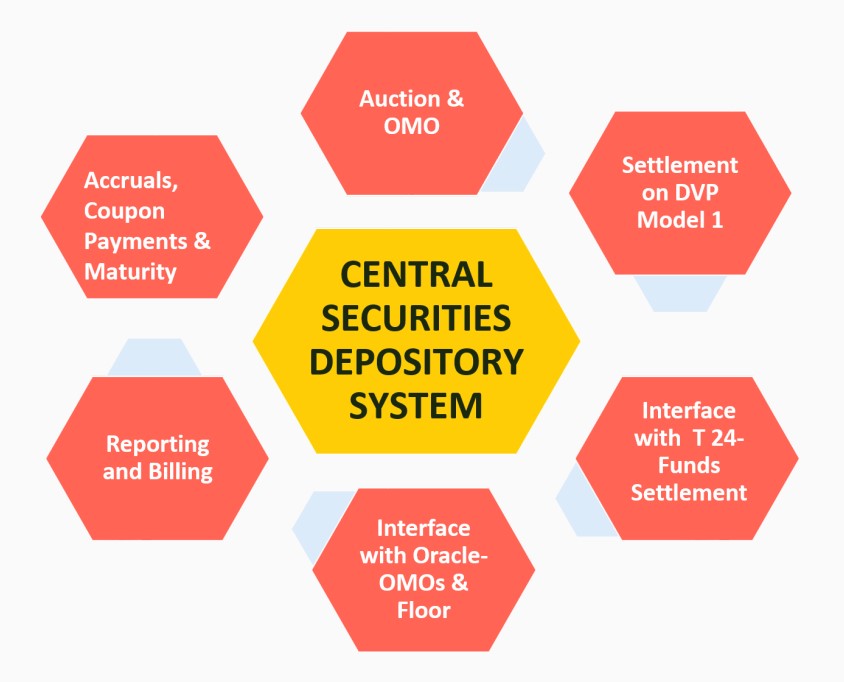
|
ISO 20022 Messaging Standard
Built on latest global standards |
Advanced Liquidity Management
Built-in tools for monitoring and optimizing available funds. |
|
Advanced Queuing
Multi-queue system for optimal liquidity management and system-wide settlement efficiency |
Decoupled Architecture
Modules operate independently, enabling targeted resilience and flexible scaling |
| Better capacity and efficiency
Designed to process higher volumes with minimal delays. |
Latest Security Features
Up-to-date encryption and monitoring for secure operations. |
The system supports the following functionalities for efficient
transaction execution and monitoring
 |
High-value interbank funds transfers with immediate settlement finality |
|---|---|
 |
Scheduling of future-dated payments, allowing institutions to manage liquidity with precision |
 |
Transaction queuing & prioritization, supporting time-critical payments |
 |
Real-time monitoring of balances, payment queues, and settlement positions |
 |
Automated billing and fee calculation, with downloadable invoices and billing logs |
Central Securities Depository SystemThe new system also provides a Central Securities Depository (CSD) platform for money market operations such as auction of government securities, sale and purchase of securities in the secondary market, collateral management and open market operations. |

|